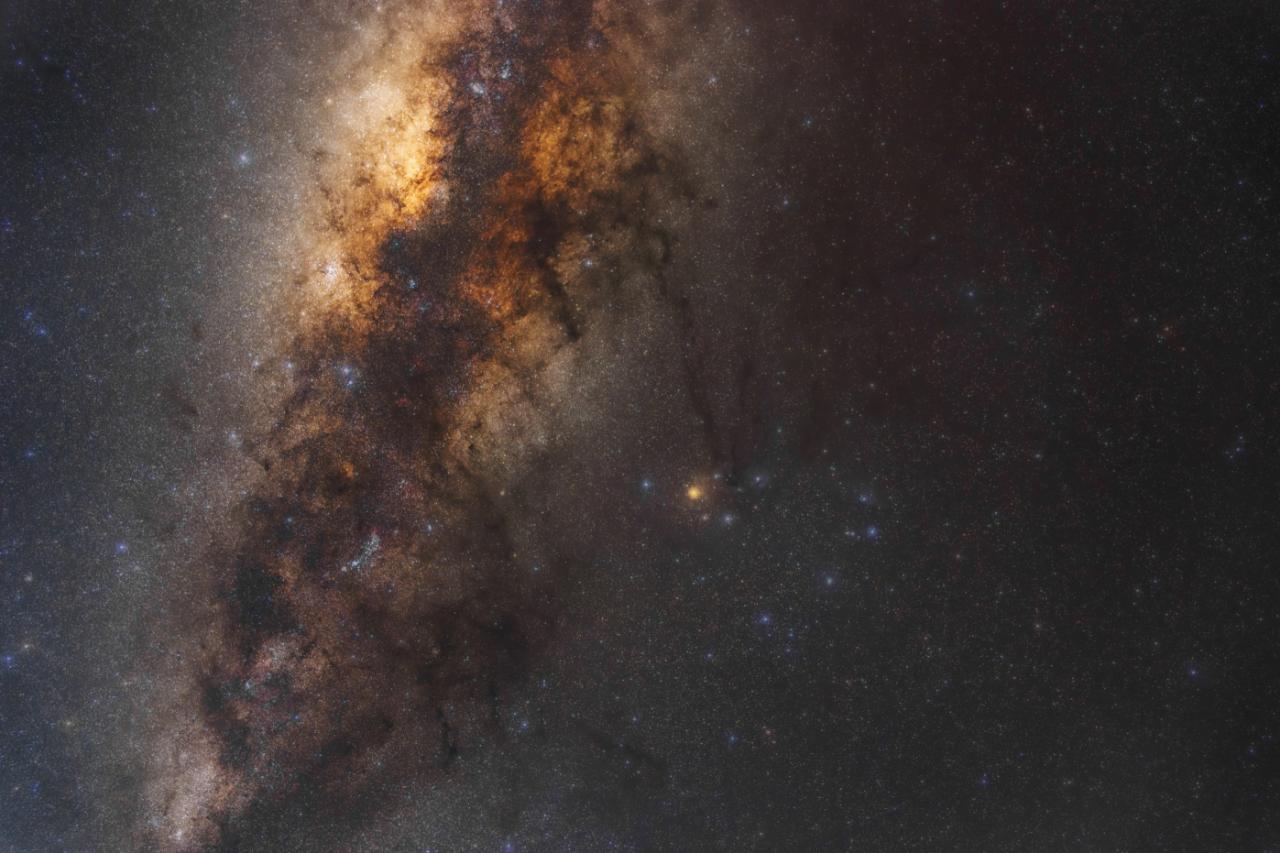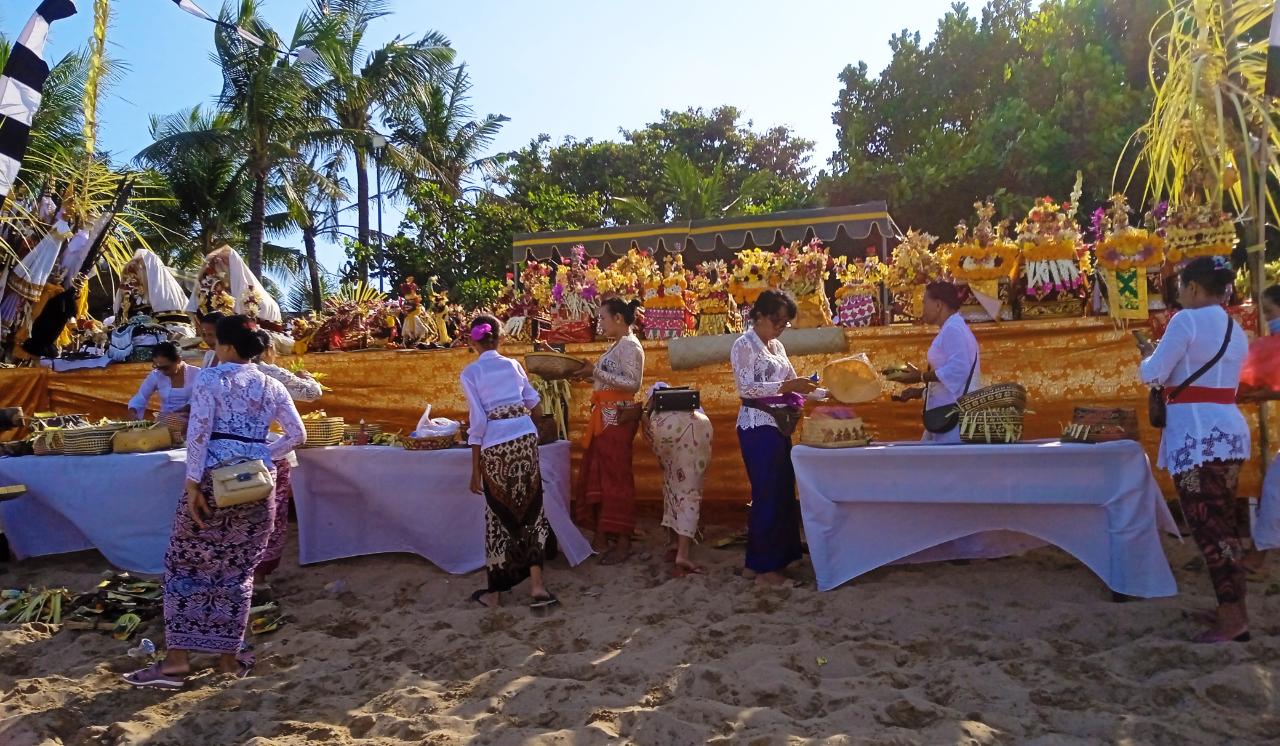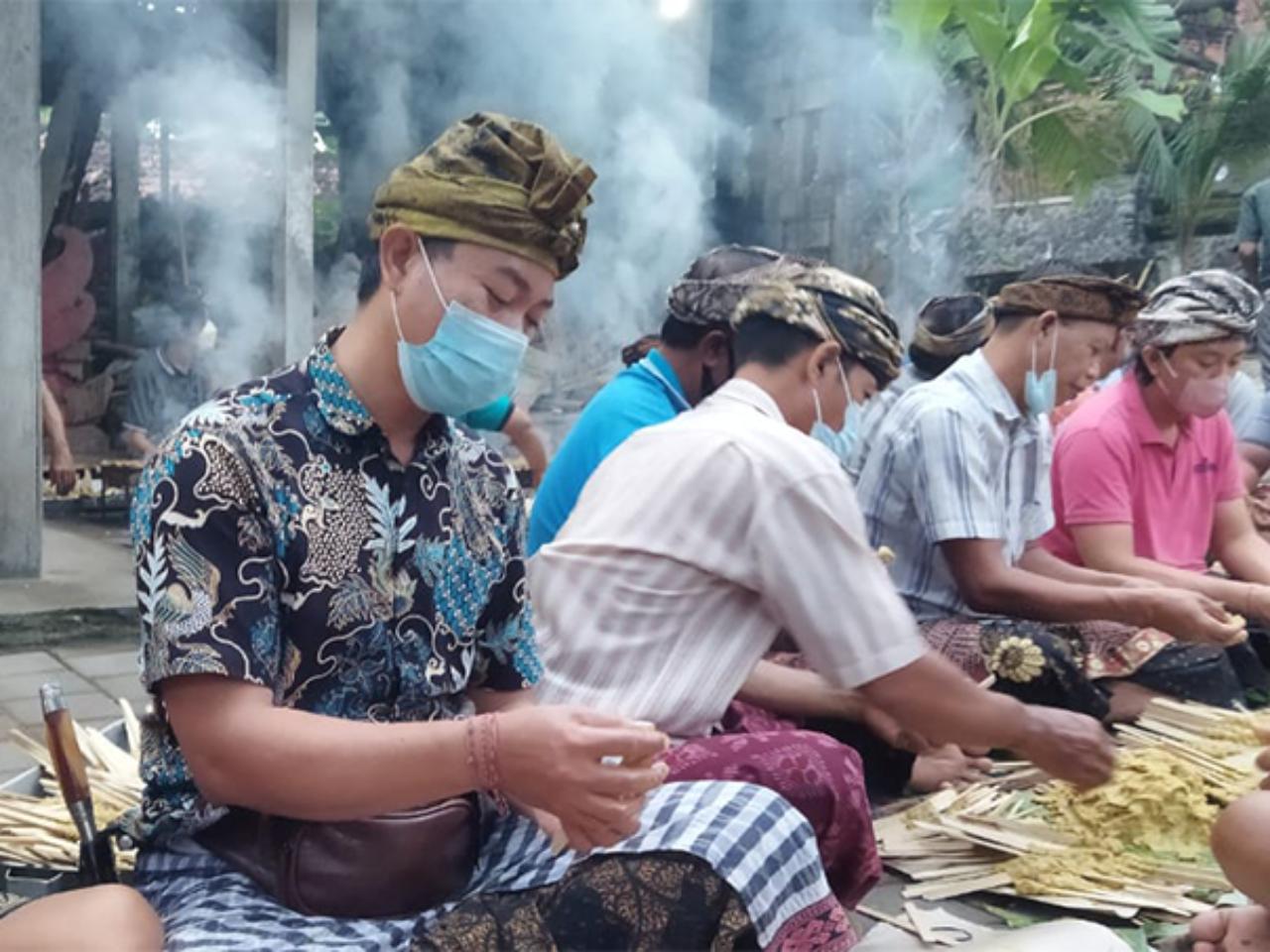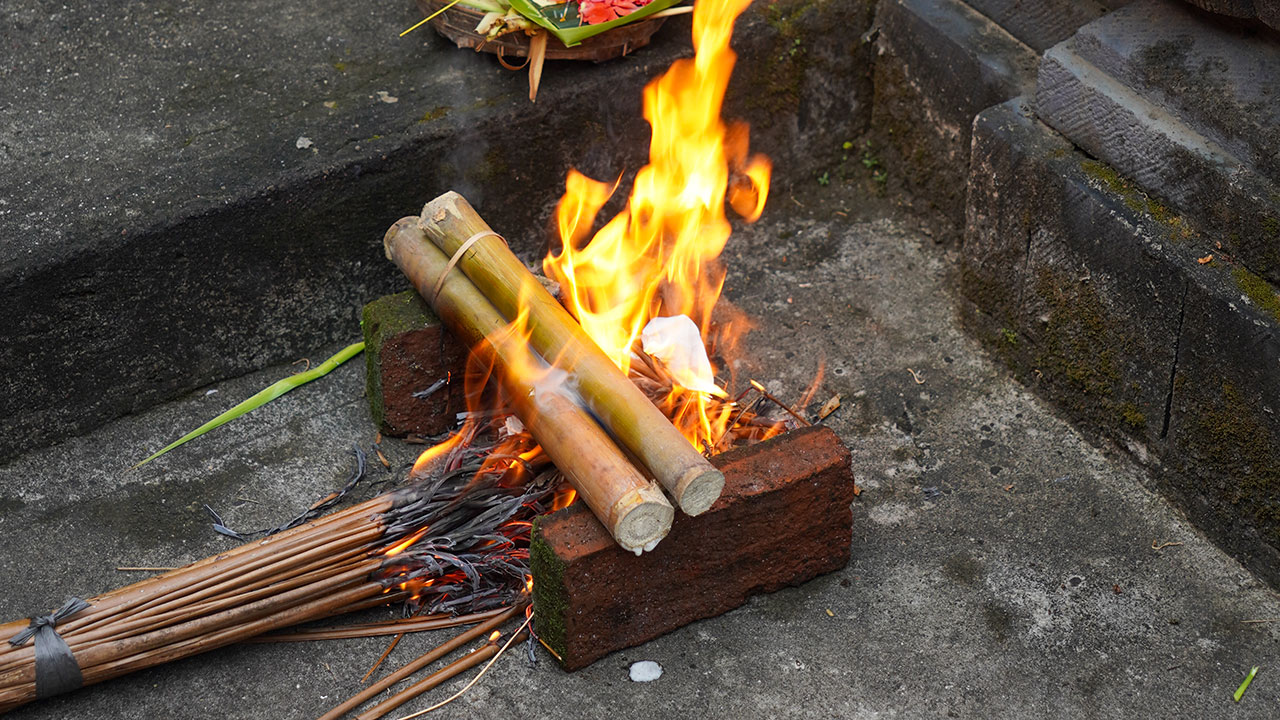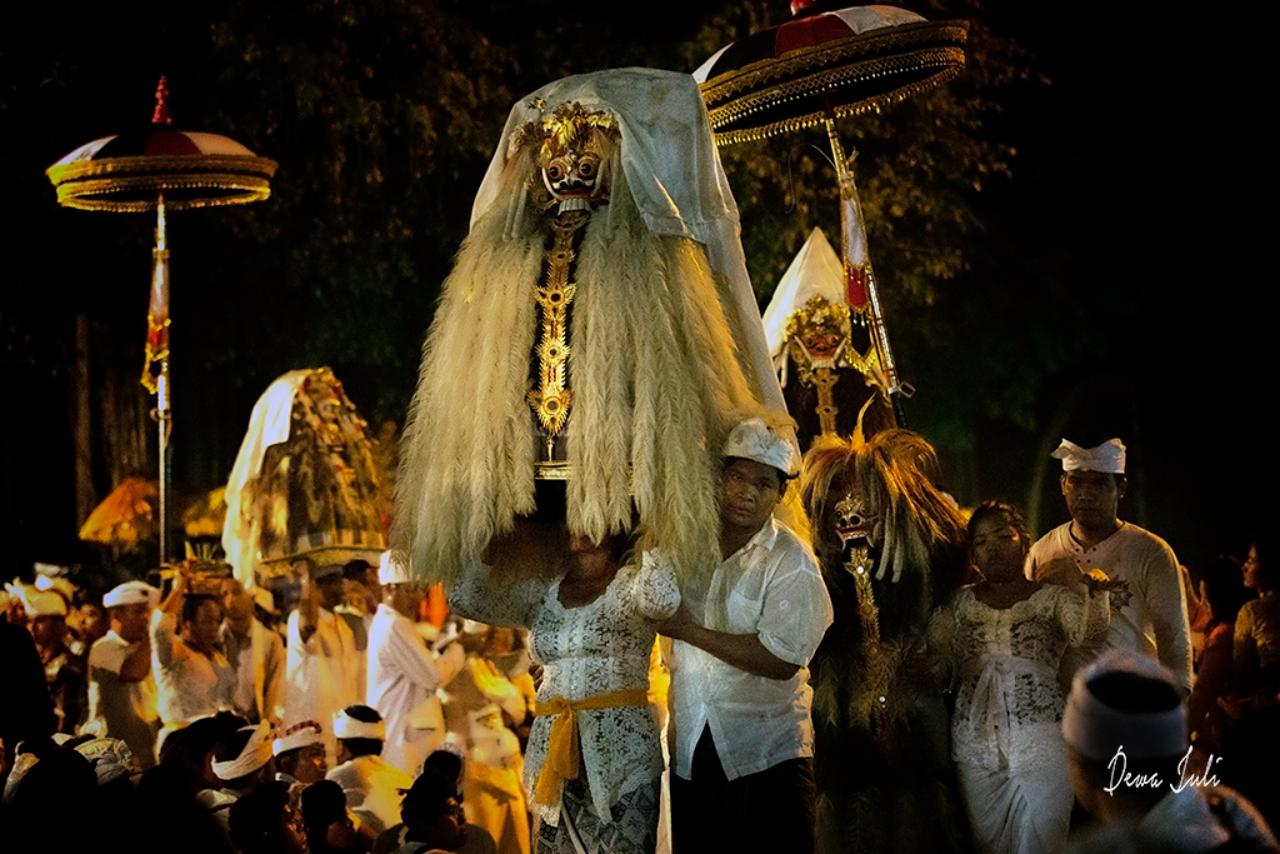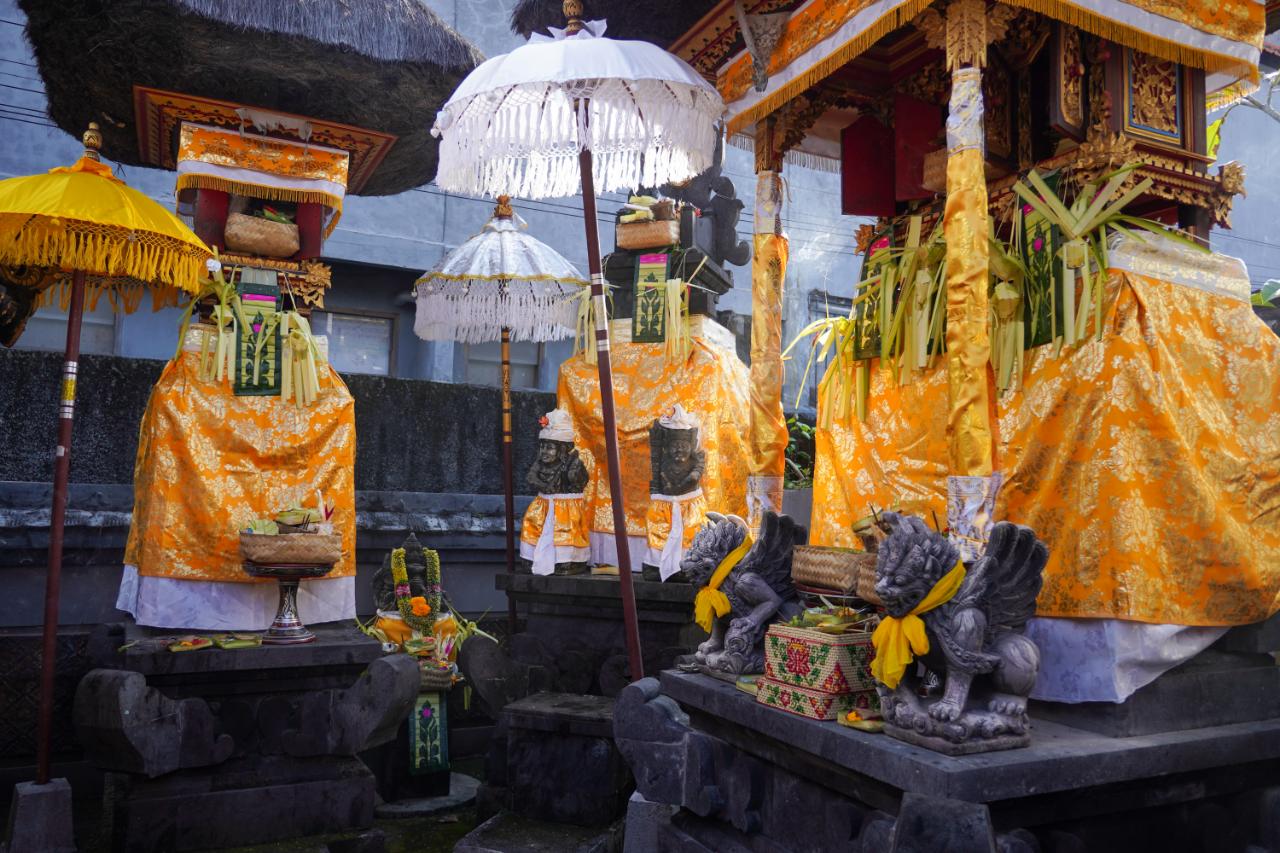The Holy Day of Silence and Respect to the Environment
Nyepi day is a celebration of the Saka New Year which falls on the tenth month of the Saka calendar. In contrast to the festivity of a celebration, Nyepi literally means to be silent. For a full 24 hours, from six am one day to the next day at six am, the Hindu community in Bali practice four abstinence’s: abstaining from lighting any fire or turning on electricity; abstaining from working; abstaining from going outside the family compound; and abstaining from indulging in any pleasurable activities.
The result expected from these abstinence’s and being silent, is to be contemplative, making time for spiritual dialogue, practicing self-control, reflecting inwardly on our deeds throughout the last year in order to start anew with a higher sense of awareness.
Nyepi is carried out simultaneously across the island and has a tremendous impact on the earth. On this day, Bali, the famous tourist destination, has a complete standstill without any activities nor business. Bali will appear to be a deserted island without noise and electricity – becoming quiet, silent, still, and completely in the dark at night.
Data shows that there has been saving in electricity usage, a reduction in carbon dioxide gas emissions by 20,000 tons, fuel saving, and an increase in air quality due to the cessation of all human transportation activities. Nyepi has inspired the idea of World Silent Day which was initiated by Triple-C (Collaboration for Climate Change), an association of Balinese NGOs during the global warming conference (UNFCCC), in Bali in 2007.
For a personal perspective, Nyepi is a day of rest and consideration. We don’t always take the time to listen to the silence of our gardens, or look in awe at a starry sky. And wonder at just how still we can be.
Nyepi traditionally starts with the Ogoh-Ogoh parade which you read about in earlier articles. The Ogoh-Ogoh raising all the evil spirits so that when Nyepi starts, and the island falls into silence, the evil spirits think the island is empty and so they move on to another island and leave Bali. There is certainly a sense of regeneration and restoration after Nyepi, a day of total quiet being as good for the people as it is the island landscape.
If you are a tourist in Bali and would like to take part in this unique experience that everyone should try once in their lifetime, then you should book your stay with a full package to make sure you stay within your accommodation’s boundaries. Be prepared with food, water, and cash to eat at the hotel’s restaurant, but even within the confines of your hotel or villa, be respectful to what is going on just outside your accommodation walls.
Please remember that some places, such as Lembongan island, actually have no electricity at all so you may need to consider this, especially with children, during your travel plans. Check your boat times and ask hotel or villa staff if there is anything you need to know about ordering in food the day before or making sure you have enough drinking water. While emergency public services are available, they don’t deem running out of Bintang constitutes an emergency!
Emergency public services are on standby at all times, so it is good to know the phone number of the nearby hospital that provides an ambulance on Nyepi Day. For such medical and disaster emergencies, the pecalang (traditional police) will assist ambulances and medical teams to get care to those in need and to save lives.
<< If you liked this article, you may also like our other articles >>
To chat with our marketing partner about your business, please contact The Travellist
